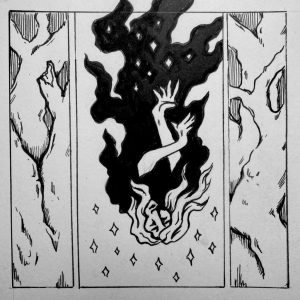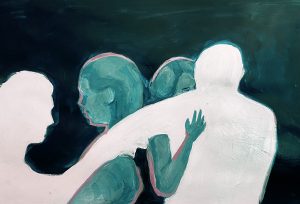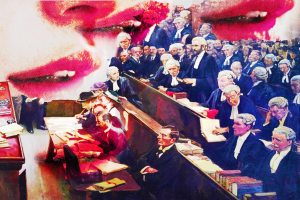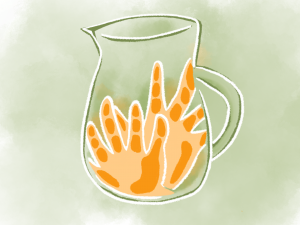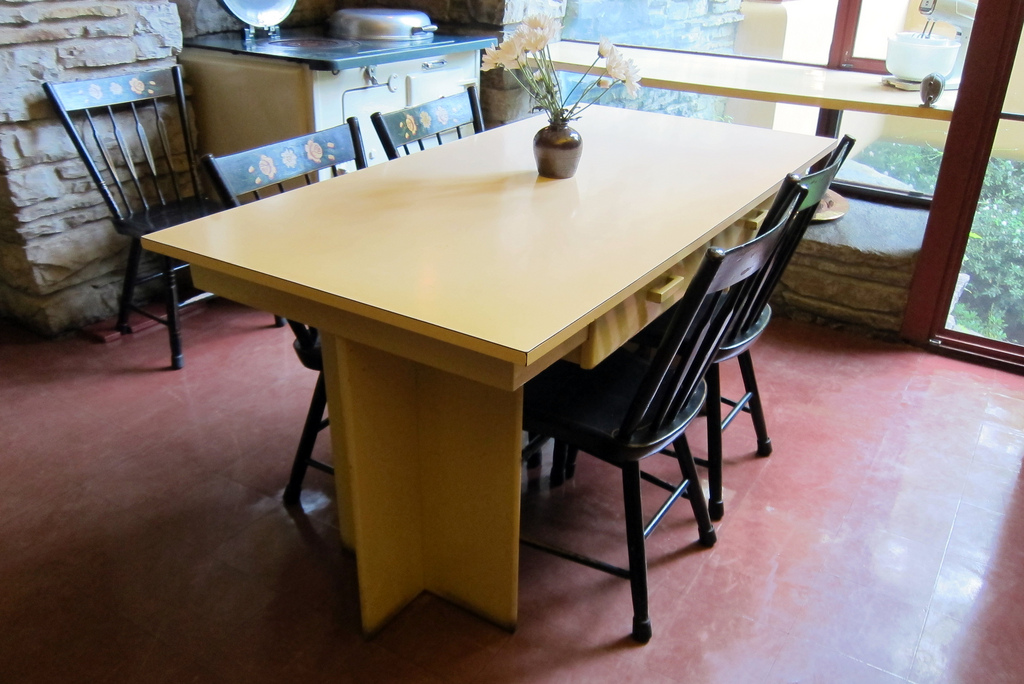
A Short Love Story
by Terry Jones | March 18, 2015
She was bent over a basin washing her hair, standing there with the failing light just catching on her shoulders. I knew then that this would be the last time I should be close to her, and the last opportunity I would have to make her hear me. So I called softly:
‘Ada’,
for I had known her name from the very first, when I had seen her across that little school-room under the hills; I had said her name to myself no louder than any small boy would dare, not able to brave the jeers and catcalls of the others:
‘Jan loves Ada.’
So I had sat small and pale in the big class-room that was painted half cream and half chocolate and is dim and dusty now and has no glass in its windows; and I did not tell a soul what I had seen across the desks, that I had sat and watched the new girl all morning and that I did not dare speak to her. In the play-time after lunch, I had walked about the group that collects around any new-comer to the school and that encourages and taunts and giggles, and I had thought that if I had gone up to her and taken her hand, somehow or other she would have recognised me.
‘Come on, Jan, and meet the new girl, her name’s Ada!’
But I would not. As I walked about it and about, I could catch glimpses of her eyes darting around her or glistening when she laughed with the others, and I had felt that there was some sort of commitment between us, and that she would recognise me. But I was afraid, and so I never knew.
But now, as I watched in that kitchen, it was not fear that I felt, so much as anxiety lest I let this final opportunity slip away from me like all the others. For I knew that it was up to me to make the first move. I had to speak out or we should remain just as we always had been.
She would never have spoken to me first, I suppose I had always known that, and that is why we had remained apart and waiting for the time when we should recognise each other in a pushing crowd in Piccadilly Tube Station, years later and for a moment her eyes would glisten, and I should open my mouth but not make a sound, and the crowd would heave and push and pull us apart into the shouldering mass, and I would stagger back, yielding, yet I would feel certain that she too had felt the anticipation and the moment of meeting. But I could not know.
And I remember the weeks after that of self-torture and accusation at the frustration: to have been for one moment at the point of recognition and to lose it and to still be as apart as ever. So this time I called very softly, so as not to frighten her, but also with as much command as I knew how, with my voice low and insistent:
‘Ada, Ada.’
In the sun setting, and the small kitchen growing dark, and the water flashing in the bowl, and glittering over her hair, and the smooth shadows on her back moving quietly but strong and lithe. Was that not how she had always been herself? Strong, independent—no, more than independent—somehow cut-off, flitting about in the shadows at the very edges of my existence, but yet somehow essential to its core.
And now, I remember my mother. Yes, I tell you, I remember her whom I never saw alive but once, when I was too shocked by the suddenness of my own being to notice her who died in giving it me. A thin, pale woman sitting at the corner of the fireplace which has now no fire in the grate, sitting in the shadows, still and strong, until a footstep suddenly pricks her to life and, lithe as an autumn fox, her eyes glistening with anticipation in the firelight, she springs to the door and stands waiting behind it, shaking with excitement; but the footsteps in the corridor hesitate outside the door, and then turn away and fade out of hearing. She is my mother, in my imagination, the little old woman in grey, whose face I cannot see and whose shoulders drop with the disappointment, and who turns back to the dying fire and pokes the last embers with a sigh and accepts the interminable separation.
And now: Ada, her face turned away from me, pale and grey in the failing light, working her fingers through her hair as silently and as lonely as I had sat in that big classroom or my mother waiting by the fire for the door which never opened. And myself wanting to yell out to her in my impatience, to burst open the door behind which I had always believed she waited and trembled with anticipation and which separated us; but one fear stops me: lest this belief which I have kept close all through my life be mistaken—a mere fabrication of my own imagination. Lest all those times, in the empty class-room, in the stifling tube-train, and now, in the silence of this dim kitchen, with the green and white squared tiles around the sink and the laved woodwork, where the soap has worn away the paint, and just the stirring of the coke settling in the boiler and the wash of the water against the enamelled basin, lest all these times there has been no potential communication—no commitment at all. Lest she has never realised the separation.
And yet I had to know, now, for certain, had to take this final opportunity to reach over to her, to make her turn round and once and for all admit that she recognised me while communication might still be possible, before her shoulders no longer glistened in the dropping sun, before the night turned cold. I called:
‘Ada! my love!’ I cried, tears in my eyes, perhaps even on my cheeks; ‘Ada! See I am here! I am come at last! my love, my Sun, my Spirit!’
And the light fell from her shoulders as she raised her head and pushed back her streaming hair, water runnelling about her tight-shut eyes and into the cracks:
‘Huh! You old fool! Come and help me dry… get a bit of beer in you, and you’re more like a pimp than a husband!’ and I smiled with her and she opened her eyes, but, of course, they were dull and dark.
January 23 1963
